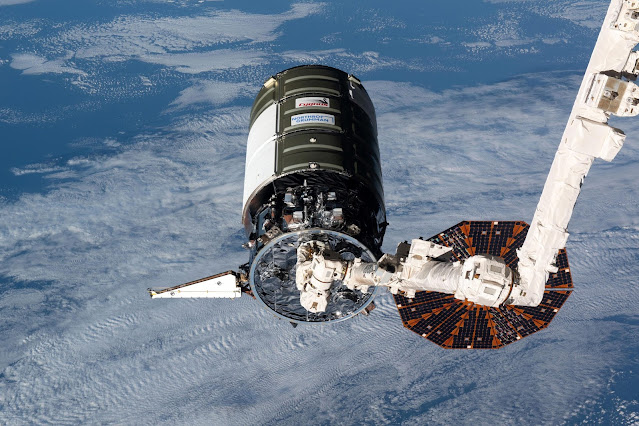Private cargo ship Cygnus arrives at International Space Station carrying 8,200 pounds of supplies
February 1, 2024
Northrop Grumman's Cygnus cargo spacecraft arrived at the International Space Station (ISS) on February 1, 2024, carrying 8,200 pounds of supplies for seven astronauts and astronauts.
The Cygnus spacecraft launched on January 29, 2024, from NASA's Wallops Flight Facility in Virginia. It was captured by the Canadaarm2 robotic arm at 6:45 a.m. ET on February 1 and docked on the International Space Station's Unity module at 8:05 a.m. ET.
The Cygnus spacecraft is named after the constellation Cygnus. This is Cygnus' 18th mission to the International Space Station.
Cargo aboard the Cygnus spacecraft includes food, water and other supplies for the International Space Station crew. It also includes scientific experiments and equipment.


.png)





0 Comments